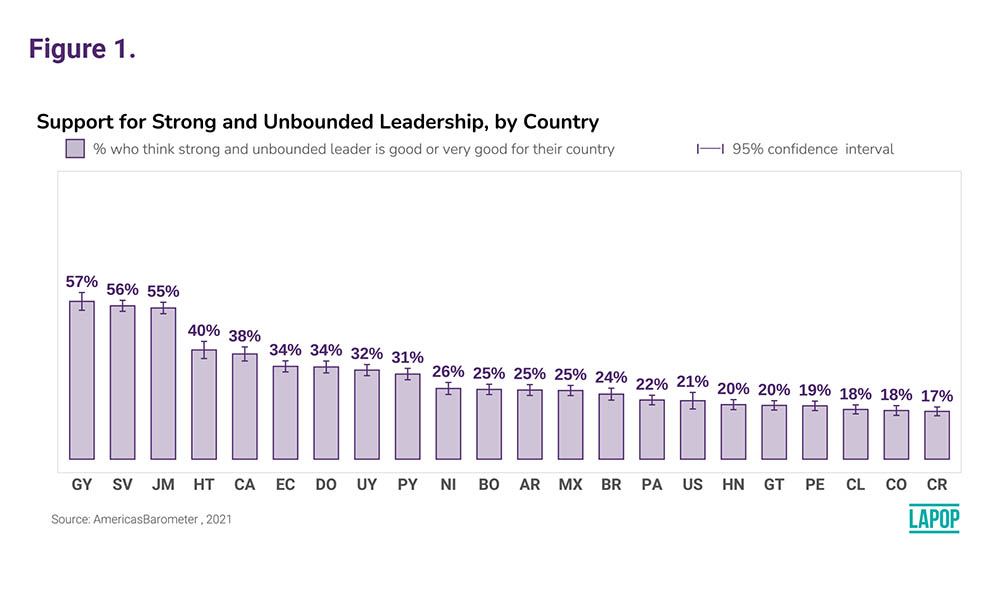A survey of countries in the Latin America and Carib-bean (LAC) region suggests that a majority of Guyanese prefer a strong leader who is willing to bend the rules to get things done.
Max Paul carried out the survey as part of the Vanderbilt’s University Insight series. The findings were released on November 15, 2022, under the title: Who Desires Authoritarian Leadership in the Latin America and Carib-bean Region?”
Participants of the survey in 22 countries in the LAC region were asked: “Having a strong leader in the government, even if the leader bends the rules to get things done. Would you say that it is very good, good, neither good nor bad, bad, or very bad as a form of government for our country?” The Insight Series report summarizes the percentage of respondents in 22 countries who report that a strong and unbounded leader is “good” or “very good” for their country.
“Guyana has the highest percentage of individuals who support this type of leadership (57.5%), while Costa Rica (17.4%) has the lowest. Notably, Guyana, El Salvador, and Jamaica form a cluster to the right, all overlapping significantly within their respective margins of error, and clearly separated from other country results,” stated the report.
From the 22 countries surveyed, it was found that those who are more economically secure and those who feel safer from crime are more supportive of strong leaders who can bend the rules to get things done.
According to the report, of all the variables tested, neighborhood security is the strongest predictor of support for strongmen.
“I find that those reporting higher levels of neighborhood insecurity also report lower levels of support for strong and unbounded leadership, which is a finding that runs contrary to theoretical expectations,” the author wrote.
Countries where majority of the respondents have achieved higher level of educations have strong predictors of opposition to strong and unbounded leadership while economically secure respondents along with those who feel safer in their neighborhoods are more likely to express support for strong and unbounded leadership, says the author.
“This Insights report shows that those who are more economically secure and those who feel safer from crime are more supportive of strong leaders who can bend the rules to get things done. Of all the variables tested, neighborhood security is the strongest predictor of support for strongmen: I find that those reporting higher levels of neighborhood insecurity also report lower levels of support for strong and unbounded leadership, which is a finding that runs contrary to theoretical expectations,” Paul wrote.
Asked whether threat or “better times” lead individuals to support strong and unbounded leadership, it was found that majority felt that if certain elements of the status quo are fulfilled, there is more tolerance for executives seizing more power.
The author noted, however, that more research is needed to assess the ways that these dynamics vary across individuals and countries given that several scholars have noted that the relationship between threat and authoritarian manifestations varies across national contexts.
“Finally, should such a direct negative relationship between threat and support for strongman leaders prove robust upon further investigation, more theoretical work will need to be done to understand how higher levels of security threat and economic threat work to reduce support for strongmen. In conclusion, this report provides a set of important findings regarding public support for strong and unbounded leadership, while also contributing to develop a research agenda for those who continue to advance discoveries on this topic,” the author said.





